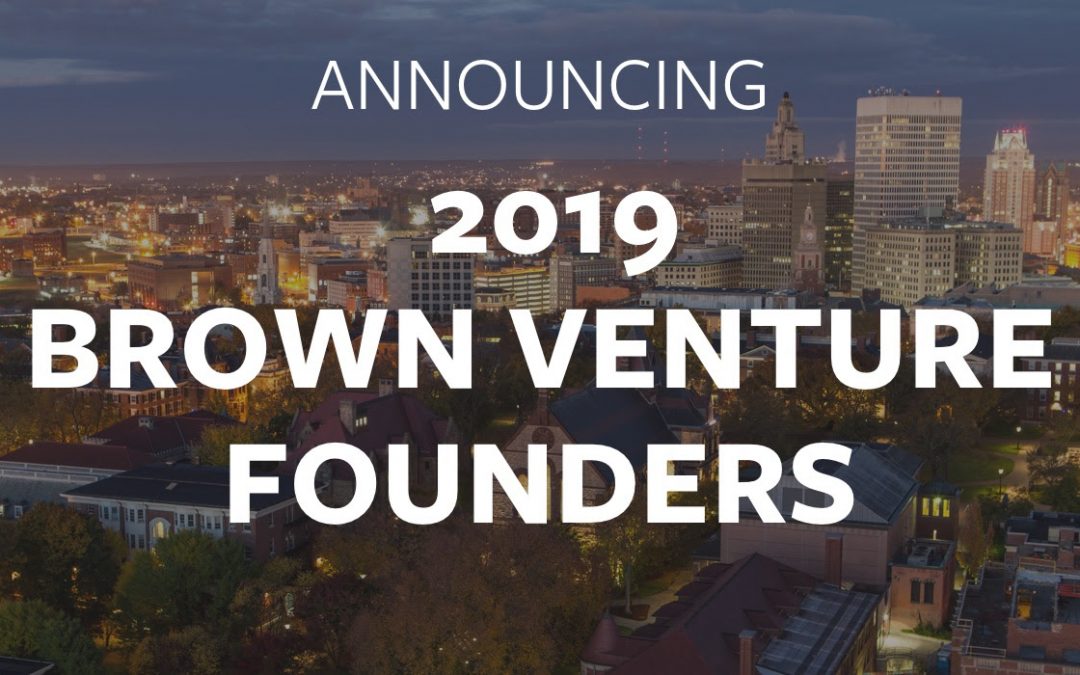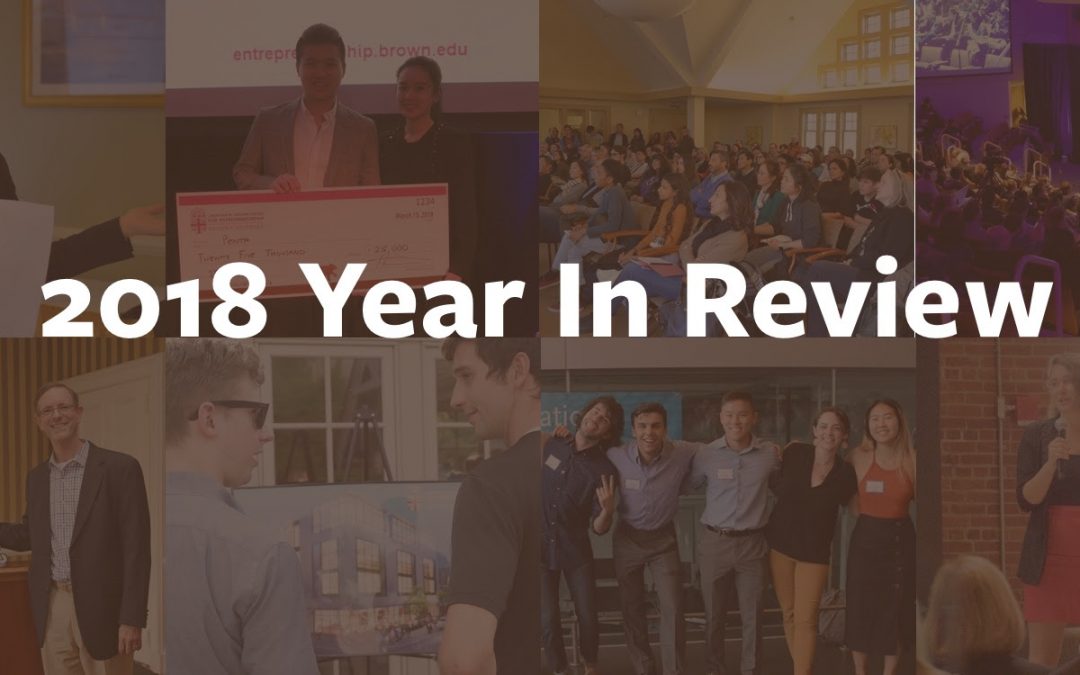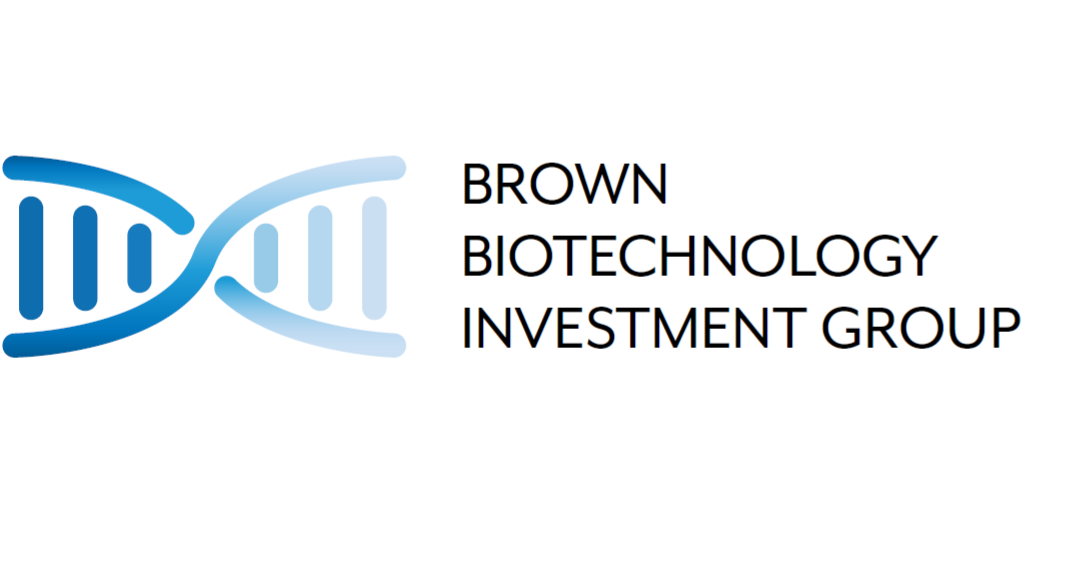
by Tori Gilbert | Mar 21, 2019 | Announcements, News from Nelson
We are excited to announce the 2019 Brown Venture Founders, an award that motivates recent Brown graduates and young alumni entrepreneurs to launch and grow their startups in Rhode Island. A partnership between the Nelson Center for Entrepreneurship and the Slater Technology Fund, this initiative offers Brown startup founders grants of up to $50,000, dedicated mentorship, co-working space for their ventures, and other resources for growing their companies in Rhode Island. We are proud to announce that Kevin Eve ‘18, co-founder of Uproot, and Rishabh Singh ‘17, the founder of Gradly, have been named the 2019 Brown Venture Founders.
This award is part of Brown University’s strategic action plan: Brown and the Innovation Economy, spearheaded by Provost Richard M. Locke. In collaboration with community leaders and experts, the University is maximizing its impact on innovation, entrepreneurship, and job growth. The Nelson Center for Entrepreneurship, along with the Slater Technology Fund, are strategic partners in this effort.

Rishabh Singh ‘17, the founder of Gradly (left) and Kevin Eve ‘18, co-founder of Uproot (right).
Meet Rishabh Singh ‘17, the founder of Gradly
Gradly, a software concierge service that assists international students moving to the US, was founded to solve the complications that Singh and millions of other international students experience when studying abroad. In effect, Gradly is digitizing the immigration and relocation process by working with banks, insurance companies, real estate firms & others so that their users don’t have to.
“The significance of Brown & the Nelson Center in my journey cannot be overstated: first, through a university scholarship that made it possible for me to attend Brown, to B-Lab where I worked on the first iteration of Gradly, and now, with Brown Venture Founders. Throughout, Brown and the Nelson Center’s support has been indispensable. As I work to expand Gradly, I am excited to continue to be a part of the Rhode Island tech ecosystem which, in my experience, has time and again proven to be uniquely positioned to support early-stage companies and emerging founders like me.”
Meet Kevin Eve ‘18, co-founder of Uproot
Uproot was founded to make healthy, sustainable plant-based milks accessible to everyone. Its first products allow cafeterias to efficiently serve a variety of plant-based milks from a single unit for the first time. The Brown Venture Founders resource will be instrumental in allowing Uproot to transition from a student venture idea into a sustainable startup.
“The Brown Venture Founder Prize has given me the support and confidence to launch Uproot in Rhode Island. The backing has been crucial as we scale production, build a team and seek investment. Launching an early stage venture has been an incredibly challenging and exciting experience. I am grateful to have the support of Brown University and the Slater Technology Fund.” Kevin and his co-founder Philip Mathieu ‘17 were participants in the 2018 Breakthrough Lab. They have now successfully launched in dining halls at Johnson & Wales University and Brown University, with more to come.

“Students in our universities will solve the great problems of our time – environmental, medical, societal,” said Thorne Sparkman (pictured to the left), managing director of the Slater Fund. “Through the Nelson Center, Brown University is at the forefront of preparing its students for these challenges with entrepreneurship courses, programs, and venture support resources. We are proud to work alongside the university to support its efforts. Through the Brown Venture Founders program and beyond, Slater is excited to invest in the next generation of Rhode Island’s entrepreneurial leaders emerging from Brown.”
Celebrating Entrepreneurship in Rhode Island – Sushi Networking Event
April 25 / 6:00 – 9:00 PM / REGISTER HERE
There’s never been a better time to be an entrepreneur in Rhode Island! Innovation, inspiration, interconnectivity, investment—all are accelerating here, driven by a growing community committed to supporting the development of promising new ventures.
Join the Nelson Center for Entrepreneurship, Slater Technology Fund, and Venture Café Providence for a special sushi networking event to celebrate entrepreneurship in our state.
by Tori Gilbert | Mar 8, 2019 | Announcements, News from Nelson
Thank you to everyone who attended the 2nd annual Brown Venture Prize pitch night! It was completely sold out with 250+ in attendance, and many alumni and friends of the center watched remotely from around the world. Congratulations to the 8 finalists who pitched their ideas to 7 alumni judges. The ventures ranged from a mobile technology to fight addiction, to an app that provides on-demand in-home care for the elderly and disabled. If you missed the event, we will soon share a link to the recording on our YouTube channel.
Formally, 1st Prize: $25,000 winner
 Left to right: Benjamin Murphy ‘19, Diane Mutako ‘20, Amelie Vavrovsky ’18, and Noah Picard ‘18, Sc.M ‘19.
Left to right: Benjamin Murphy ‘19, Diane Mutako ‘20, Amelie Vavrovsky ’18, and Noah Picard ‘18, Sc.M ‘19.
Formally empowers applicants and attorneys by making immigration and legal forms easy.
goTeff, 2nd Prize: $15,000 winner
 From left to right: Abenezer Simon Mechale ‘21 (UPenn) and Saron Simon Mechale ‘19.
From left to right: Abenezer Simon Mechale ‘21 (UPenn) and Saron Simon Mechale ‘19.
goTeff is a mission-driven nutrition brand using teff grain
—a superfood from Ethiopia, with a vision to provide superior nutrition to
US consumers while empowering Ethiopian small-holder farmer
EmboNet, 3rd Prize: $10,000 winner

From left to right: Berke Buyukkucak Sc.B. ’18, M.Sc., ’19, Emily Holtzman ‘18 (RISD), Gian Christian Ignacio ’18, M.D. ‘22, and Celina Hsieh ‘18, M.D. ‘22.
EmboNet is developing a double-layered, pocketed mesh designed to securely capture and remove embolic debris from blood, reducing stroke risk and cerebral injury associated with cardiac bypass surgeries.
Thank you to our alumni judges!
The Brown Venture Prize is possible thanks to the co-founders of Casper, Neil Parikh ’11 and Luke Sherwin ’12. Because of their generous gift, we can continue supporting and empowering students to create solutions with impact and make their ventures a reality.
Our alumni judges had the difficult task of first selecting the top 8 ventures to pitch on March 6, and then selecting the top 3 ventures to win $50k in prize money. Judges present last night included:
Rufus Griscom ’91, CEO and co-founder, The Next Big Idea Club
Liz Hamburg ’86, founder, Upstart Ventures
Rajiv Kumar ’05 MD ’09, President and Chief Medical Officer, Virgin Pulse
Luke Sherwin ’12, co-founder of Casper
Laura Thompson ’09, Advisor, Project Wayfinder
Adam Vitarello ’05, President and co-founder of Optoro
Jayna Zweiman ’01, Activist, Artist, and co-founder, Pussy Hat Project
Ben Chesler ’15, Chief Innovation Officer of Imperfect Produce and Heidi Messer ’92, co-founder of Collective[i] were unable to attend the night of, but were instrumental in the selection of the top 8 and mentoring these students.


by Tori Gilbert | Jan 2, 2019 | News from Nelson
From breaking ground on our new home on Thayer Street, to the launch of new programs, 2018 was a big year for the Nelson Center and entrepreneurship at Brown. We took some time to reflect on the top ten highlights of 2018. Enjoy!
Happy New Year!
-Nelson Center Team

Top 10 Highlights
1. Due to a generous donation from the co-founders of Casper, Luke Sherwin ‘12 and Neil Parikh ‘11, we started the Brown Venture Prize. Three ventures took home $50k in total prizes: Trang Duong ‘18 from Penta; Jack Roswell ‘18, Julian Vallyeason ‘18, and Alex Zhuk ‘18 from Cloud Agronomics; and Michelle Petersen ‘18 from Textup.In case you missed it, watch the evening of pitches.
2. We broke ground on our new center building. Watch the live progress!
3. In conjunction with the Slater Fund, we awarded $50k to our first ever Brown Venture Founder to Michelle Petersen ‘18, co-founder of Textup.
4. Hosted our inaugural Entrepreneur in Residence, Jessica Kim ‘00, co-founder of Ianacare. She also was the keynote at this year’s Startup@Brown Conference, hosted by our student club, EP.
5. Founder Fridays made a splash this year! Among others, we hosted Michael Slaby ‘01; Chuck Davis ‘83; and co-founders of Dogfish Head, Mariah Calagione ’93 and Sam Calagione. We even partnered with the Watson Institute for a podcast with Slaby.
6. Assistant Professor Jennifer Nazzareno joins the Nelson Center team and the School of Public Health for a dual appointment, offering new classes for students. She also leads the Nelson Center’s Entrepreneurship Research Seminars.
7. Launched the first ever International Synapse in Barcelona over spring break. Students had so much fun, we’re going to Barcelona again in 2019 and added a new trip to London. We also have other international programs, where students can get internships in Israel, Sweden, and Germany.
8. Brown University student ventures continue to thrive in 2018. Join us in cheering on Textup (RI Biz Plan Competition Winner); Cloud Agronomics(Collegiate Inventors Competition and Impact Challenge); ReliaBra (Get Started RI Pitch Competition); Formally (EMRG) and goTeff (Hult Prize). Also, be on the lookout for the winners of the RI Elevator pitch competition.
9. Welcomed 14 ventures into the 2018 Breakthrough Lab Accelerator. These ventures tackled everything from low-cost prosthetics, to immigration form accessibility, to supermarket inventory optimization. Watch the pitches here.
10. Students enrolled in new entrepreneurship courses! Howard Anderson’s course ENGN 1931Q: Entrepreneurial Management in Adversity and Dr. Banu Ozkazanc-Pan’s course, ENGN 1931N: Building Entrepreneurial Ecosystems for Economic Inclusion. ENGN 1931N was such a success that the Venture Capital Inclusion Lab spun out of the course. Dr. Ozkazanc-Pan received funding from the Kauffman Foundation and the lab will continue into spring 2019.
by Tori Gilbert | Oct 17, 2018 | News from Nelson, Student Experience
Each year at Rough Draft Ventures, General Catalyst’s student founder focused program, meets hundreds of students who are shaping entrepreneurial communities across campuses in Boston — hackathon organizers, entrepreneurship club leaders, code club organizers, and more. Of those students, they select ten to join the program as Venture Fellows.
Venture Fellows are ambassadors for RDV and fellow entrepreneurs on campus, helping to identify and support student founders. They work closely with student groups and collaborate on events and programs to bolster the student entrepreneurship community. Every other week, Venture Fellows hear pitches from top student founders and make recommendations for backing highest potential companies.


Annabel Strauss ‘19 was a selected student from Brown, and she studies Computer Science and Economics. She has spent her summers in tech as a software engineer intern at Facebook, OkCupid, and Instagram. Annabel is passionate about women’s empowerment, particularly in tech. In high school, she was a club head for Girls Who Code and founded a conference for NYC young women in tech called Bit by Bit: Breaking the Barrier for Girls in Tech. At Brown, Annabel leads the Community Team of the Brown Entrepreneurship Program. She enjoys getting to know all the student founders on campus and talking to them about their ventures. Read more about the other Boston Venture Fellows, here.
by Tori Gilbert | Oct 4, 2018 | News from Nelson
CEIBS Research Fund: “Aged to Perfection: Benefits from An Inactive Population” in Honour of Dr. Gerard Van Schaik, Co-Chairman of CEIBS Board of Directors Future of Work and Aging: New Challenges and Opportunities
Primary Investigator: Banu Ozkazanc-Pan, Ph.D., Visiting Associate Professor of Sociology and Faculty, The Jonathan M. Nelson Center for Entrepreneurship, Brown University; Associate Professor of Management, College of Management, University of Massachusetts
Co-Primary Investigator: Jennifer Nazareno, Ph.D., Assistant Professor, School of Public Health and The Jonathan M. Nelson Center for Entrepreneurship, Brown University
Their study is titled: Future of Work and Aging: New Challenges and Opportunities


In recent years, increased attention has been focused on the Future of Work or those new conditions of work that will arise due to the rise and use of technological advances, such as artificial intelligence (AI), virtual and mixed reality, blockchain and others. The concerns and opportunities arising out of these advances are the replacement of human workers with automation or robots with advantages such as lower costs, less errors and increased productivity. At the same time, humans are now living longer, requiring more resources in later life, and relying on inadequate medical, social and economic systems and structures to take care of their health and well-being. Such workers, who were indispensable to the growth of economies, are now findings themselves out of the workforce, becoming replaced by younger generations as well as non-human workers. The convergence of these two important trends warrants further attention and research to understand the challenges and opportunities arising out of the growth of technological advances in the context of rapidly aging populations of societies that need long term care. What does the Future of Work hold for an aging workforce as rapid technological and social changes impact how work gets done and how societies respond? Already, research has demonstrated that there could be growing inequalities as automation and AI are being used to make decisions impacting the livelihood of communities, such as how welfare is distributed and how people become labeled as potential future criminals. There is also concern about a future that is ‘jobless’ for humans as production becomes fully automated in certain sectors. These concerns become amplified for aging populations in industrialized and wealthy nations who require increased resources, such as long term care and health services, from caregivers that often have migrant backgrounds. Research in this area has shown that often caregivers do not have enough savings to retire and continue to take care of clients who are, in fact, sometimes younger themselves. This project combines the expertise of the principle investigators in the areas of technology and healthcare and aims to understand the implications and consequences of rapid technological and social changes as they relate to an aging workforce in the context of Future of Work. The PI, Prof. Banu Ozkazanc-Pan, has expertise in studying technology and examining the role of technology in creating barriers and opportunities for different segments of the population. The co-PI, Prof. Jennifer Nazareno, has carried out research examining the conditions, opportunities and challenges of aging populations and their health and long-term care needs.
The aims of this project are to 1) understand the ongoing trends at the intersection of Future of Work and aging population, 2) identify opportunities for engaging the aging population as changes in the nature of work take shape via technological advances, and 3) identify challenges for an aging population with respect to their ability to contribute to the workforce.
Data collection will take place via a combination of qualitative and quantitative approaches and will be predominantly in the U.S. Interviews will take place with technology CEOs and entrepreneurs, Mayors of various size cities in the U.S., and healthcare providers and workers. The PI has previously worked technologists and Mayors and will utilize her networks to gain access to at least 25 individuals to understand their points of view, experiences and practices or policies. She is also part of a Future of Work council in the city of Boston and will conduct focus groups with members who represent different sectors of work. The co-PI has carried out extensive research on long-term care and will access healthcare providers and workers to conduct interviews with at least 25 of them. Both investigators will also conduct interviews with 20-25 individuals over the age of 65 to gain an understanding of their experiences. Quantitative approaches will be utilized to illustrate trends and changes in the workforce with regard to technological advances and social changes. These trends will be identified using data from the American Community Survey as well as other databases. Given that both investigators have carried out research in relation to technological changes and long-term care, preliminary findings from previous work indicates that technological and social changes will most likely push out older workers from the tech sector while also increasing demands on the labor and services of low-wage long-term care givers. This project will provide in-depth research into the convergence of these two trends and highlight potential opportunities as well as challenges that will face societies and organizations. Any publication resulting from the project will acknowledge the financial support of the CEIBS research fund on “Aged to Perfection: Benefits from An Inactive Population” in Honour of Dr. Gerard Van Schaik, Co-Chairman of CEIBS Board of Directors.

by Tori Gilbert | Oct 1, 2018 | Announcements, News from Nelson
The Brown Biotech Investment Group (BBIG) is a group of students interested in the intersection between healthcare and entrepreneurship. Through Nelson Center’s advisory support, the group will educate and engage its members on biotechnology and investments while also providing a tangible benefit to the University. BBIG members come from diverse academic backgrounds and focus on interdisciplinary collaboration to help members advance their learning and career goals. Check them out on Facebook.



 Left to right: Benjamin Murphy ‘19, Diane Mutako ‘20, Amelie Vavrovsky ’18, and Noah Picard ‘18, Sc.M ‘19.
Left to right: Benjamin Murphy ‘19, Diane Mutako ‘20, Amelie Vavrovsky ’18, and Noah Picard ‘18, Sc.M ‘19. From left to right: Abenezer Simon Mechale ‘21 (UPenn) and Saron Simon Mechale ‘19.
From left to right: Abenezer Simon Mechale ‘21 (UPenn) and Saron Simon Mechale ‘19.







